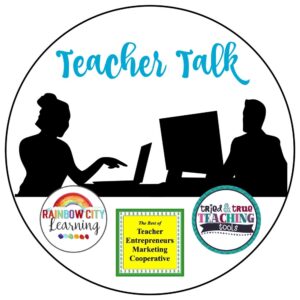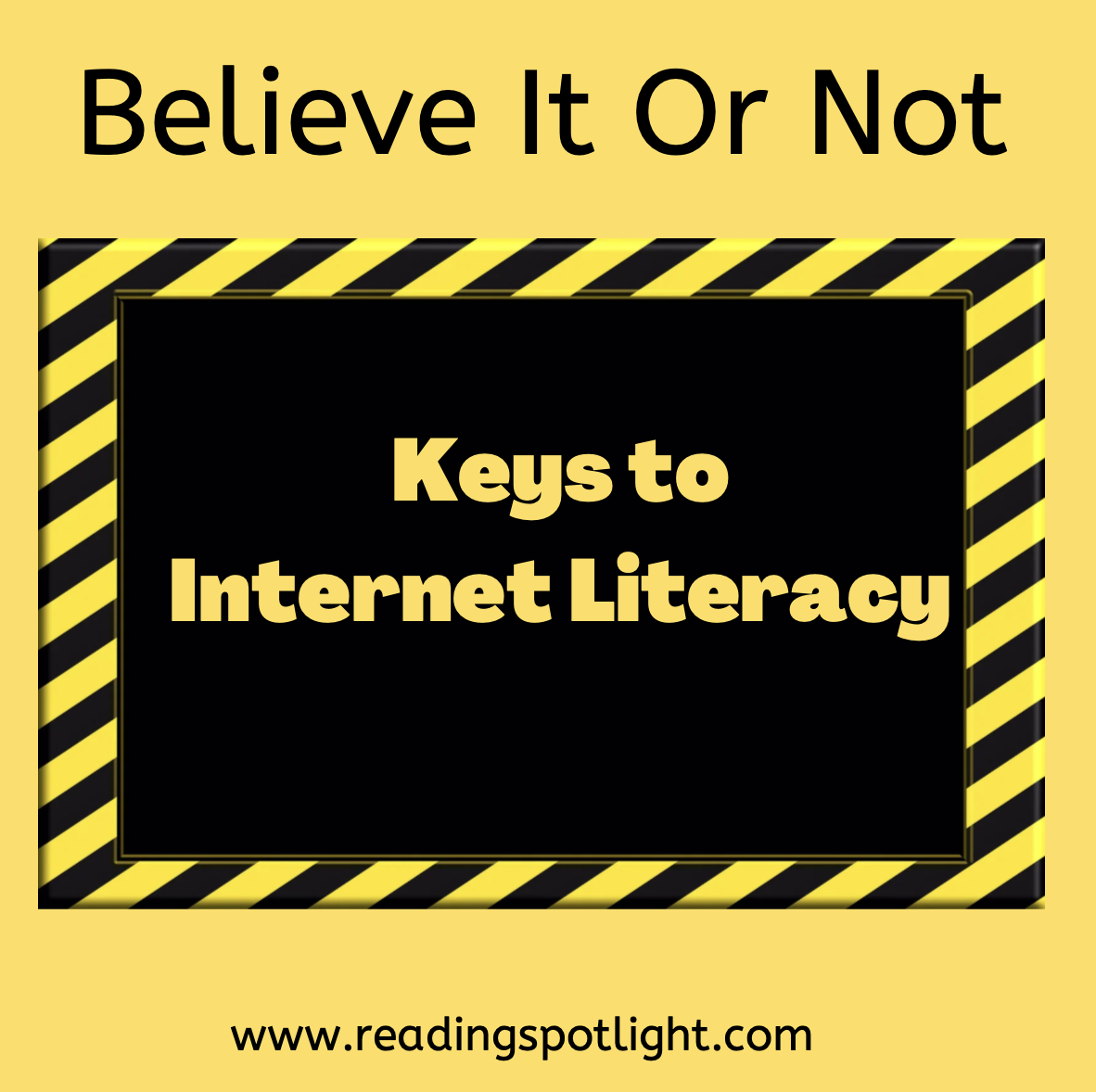Who knows what to believe anymore?
When it comes to the internet, many folks, young and old, have difficulty figuring out what is true and what is not, especially with technology now being able to change the appearance of reality. We all have an evolving grasp on technology, and many of us can be duped into sharing and amplifying misinformation.
It is important for Language Arts teachers to educate themselves and their students about internet and news literacy. Critical thinking in the age of the internet is one of the most important educational goals we can pursue. I believe in starting young.
To see how I encouraged my second graders to use common sense for critical thinking in a fun and effective way, see my previous post:
Here are a few points to begin both your and your students’ exploration.
- Learn how to search for credible sources. If there is only one source for some post or tweet that you want to share, think twice about it. Try to find a trustworthy source or two that contains the same idea. Use long standing journalistic sources that have known standards, including truth, independence, ethics, fairness, and accountability, to check the original post or tweet you want to share. This is very important, but it is becoming more difficult by the day. Popular and usually trustworthy websites include www.factcheck.org and www.snopes.com.
- Check your emotions before you push send. Uplifting stories that tug at heartstrings can be enjoyed by most of us, but tales that anger or make us fearful are dangerous when they are not truthful. Stories and movies that make heroes out of bad guys may be interesting, but too much of this culture damages the minds of young and old alike. If the post makes you feel especially emotional, wait to share.
- Keep a sharp lookout for clickbait. So many times when I see some really interesting article advertised on a page I am reading, avoiding MORE clickbait that will eventually follow is my best reason for not clicking. Our internet providers know what we are reading, so they use an enticing word, thought, or photo to tempt us. The actual post after we click, though, is usually disappointing. We often realize how unreliable most of it is, but it IS hard not to click sometimes. Be strong, and do not click when you suspect they are trying to lure you to another site for their own purposes.
- Use your common sense before you share. If that little voice inside you is questioning anything about the news article, post, or tweet, check for other credible sources. When in doubt, don’t share.
You can also help students recognize propaganda. When regular TV was the most popular form of entertainment, I always did lessons that included students exploring how TV ads utilize propaganda to market their products to children. I usually used the day before a holiday to do these lessons. I taped ads from Saturday morning children’s programing, and we discussed them in class. (BTW, you should watch what your students are viewing. It sometimes makes your eyes pop.)
Some Forms of Propaganda
- Bandwagon (Everybody is buying one!)
- Transfer (Your favorite sports star wears this shoe. See how high he can jump, implying you will jump that high, too.)
- Generalization (It’s so great! —no details, just very general words.)
- Testimonial (Famous actors (TikTok influencers today?) tell you how good it is.)
- Door- in-the-Face (It’s half off, was $20 –NOW—only $10! Or… for FREE, we will send you another one! –real price is probably $10 or less.)
- Repetition (Fun! Fun! Fun! Fun! Fun! — We counted the number of times this word or one like it (delicious, new) was used in a commercial.)
There are many more propaganda techniques. Many of them are negative, but Numbers 1-6 here are the ones I used. If you are interested in more ideas for classroom instruction, see the
Lessons to improve internet literacy are worth the effort. Teachers can save America.
© Reading Spotlight 2022

Here are some other posts about education from my friends at TBOTEMC:


